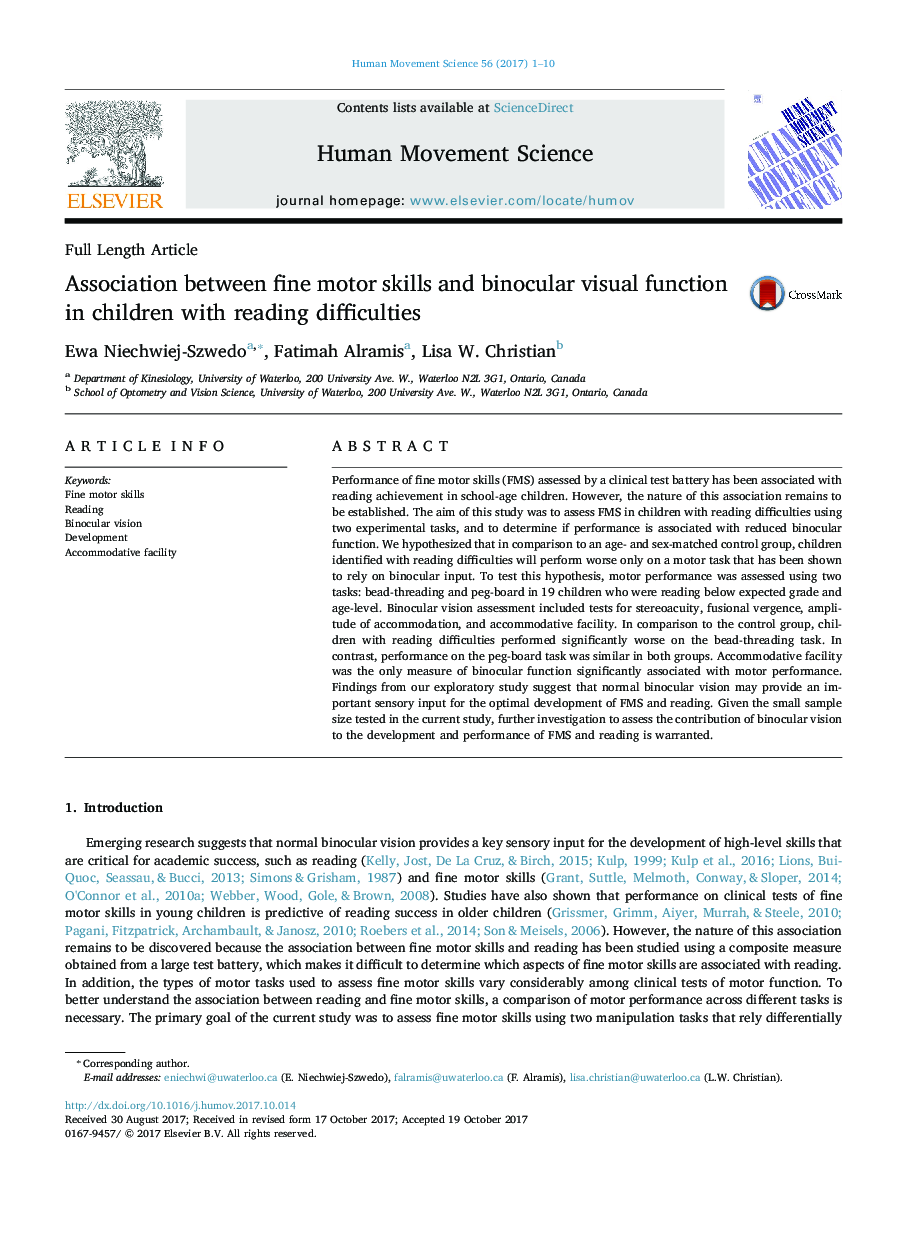| Article ID | Journal | Published Year | Pages | File Type |
|---|---|---|---|---|
| 7290953 | Human Movement Science | 2017 | 10 Pages |
Abstract
Performance of fine motor skills (FMS) assessed by a clinical test battery has been associated with reading achievement in school-age children. However, the nature of this association remains to be established. The aim of this study was to assess FMS in children with reading difficulties using two experimental tasks, and to determine if performance is associated with reduced binocular function. We hypothesized that in comparison to an age- and sex-matched control group, children identified with reading difficulties will perform worse only on a motor task that has been shown to rely on binocular input. To test this hypothesis, motor performance was assessed using two tasks: bead-threading and peg-board in 19 children who were reading below expected grade and age-level. Binocular vision assessment included tests for stereoacuity, fusional vergence, amplitude of accommodation, and accommodative facility. In comparison to the control group, children with reading difficulties performed significantly worse on the bead-threading task. In contrast, performance on the peg-board task was similar in both groups. Accommodative facility was the only measure of binocular function significantly associated with motor performance. Findings from our exploratory study suggest that normal binocular vision may provide an important sensory input for the optimal development of FMS and reading. Given the small sample size tested in the current study, further investigation to assess the contribution of binocular vision to the development and performance of FMS and reading is warranted.
Related Topics
Life Sciences
Neuroscience
Cognitive Neuroscience
Authors
Ewa Niechwiej-Szwedo, Fatimah Alramis, Lisa W. Christian,
